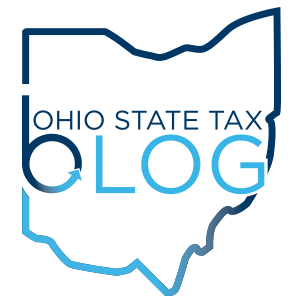Are You Sure? Is That Improvement / Construction Real Property For Ohio State/Local Tax Purposes?
Your Ohio business may substantially benefit from personal property characterization for an improvement to be constructed or even an existing building / structure. How can that be? This is because Ohio no longer has a personal property tax. As a result, real estate taxes are avoided if the property, or any portion thereof, is properly characterized as real property.
Keep in mind, the characterization of property as real or personal property is governed by the same statutory provisions for purposes of all Ohio state and local taxes, and consisting of R.C. 5701.02 (real property) and 5701.03 (personal property). Real property includes land, buildings, improvements, fixtures and structures, while personal property includes “business fixtures”. These terms are statutorily defined with the most critical aspect being that property devoted to a special business purpose conducted on the land generally is not real property, but is a business fixture.
So, how can that be? A massive improvement, building or structure permanently attached or embedded into the land can be characterized as personal property? Well, based upon existing Ohio Supreme Court authority (and even the Ohio Department of Taxation’s own guidance), if the property at issue is devoted to the particular business conducted on the land (i.e., not likely to have utility to a subsequent user in a different line of business), the item is personal property. This is the rule even if for non-tax purposes the property is clearly real property under the general property laws of Ohio. See the Ohio Supreme Court’s decision in Funtime, Inc. v. Zaino (2004) (Court held that personal property included station houses sheltering patrons waiting in line to ride an amusement park attraction). Clearly, many Ohio buildings, structures and improvements, or components thereof, have the requisite special purpose so that they are not real property and, thus, should not be subject to real estate tax.
Of course, this article assumes that the subject property is permanently attached. So, the focus is on the purpose for the property. Does the property have utility to a subsequent owner or tenant in a different line of business? If the answer is “no” – that the property has some degree of special purpose confining its use to a similar business, it is likely personal property. However, if the property does have broad utility so that almost any subsequent owner or tenant would use it, then the property is likely real property.
Even as real property, all is not lost since the property may independently be exempt from real estate tax based upon its use (e.g., charitable exemption) or location (e.g., enterprise zone). Moreover, from a sales tax perspective, if the item is real property, only the party purchasing the materials and incorporating them into the real property owes the sales tax on the material cost. There are also sales tax exemptions for materials incorporated into government owned property or property to be owned by certain charitable institutions.
Let’s assume you can support personal property characterization and thereby avoid real estate tax. Well, how about sales tax? Yes, sales tax is due on the purchase of personal property at rates ranging from 6.5% to 8.0%. However, there are many exemptions, including the purchase of the seller’s own used property, in which case the casual sale exemption would apply. Also, if the property is used for an exempt purpose, it would not be taxable upon purchase. Exempt purposes include property used in:
| · Manufacturing, processing and assembling
· Refining · Mining · Agricultural, floriculture, and horticulture |
· Farming
· Rendering a public utility service · Oil/gas production · Water production |
Even if the property is not exempt upon its purchase using one of the above exemptions or the casual sale exemption, perhaps the one-time sales tax is offset by real estate tax to be saved – real estate taxes to be saved forever! Presumably, the handful of years without real estate tax, surely offsets the one-time sales tax paid upon purchase of the tangible personal property.
Business owners should closely revisit their property holdings and future purchases, including property to be constructed. Then, they must strongly consider the potential for classifying some of their holdings as personal property and thereby avoid real estate tax, especially if sales tax can also be avoided based upon an exemption.
This article was originally published in Properties Magazine.
